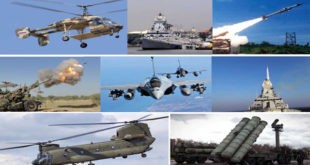In an era defined by technological advancements, the integration of Artificial Intelligence (AI) into military operations has emerged as a game-changer, revolutionizing the landscape of modern warfare. With its ability to process vast amounts of data, make rapid decisions, and augment human capabilities, AI is reshaping military strategies, enhancing operational efficiency, and driving significant growth in the defense industry.
The Rise of AI in Military Operations
Artificial Intelligence is increasingly becoming a cornerstone of military operations across the globe. Its applications span a wide range of areas, including autonomous targeting, surveillance, cyber defense, logistics, and battlefield healthcare. By leveraging AI-powered systems, armed forces can achieve enhanced situational awareness, faster decision-making, and improved mission effectiveness.
One of the key drivers behind the adoption of AI in the military is its ability to handle big data analytics. The defense sector relies on AI to process and analyze large volumes of data, enabling commanders to make informed decisions at operational, strategic, and tactical levels. From managing equipment and training to monitoring installations and conducting cyber warfare, AI plays a crucial role in optimizing military functions and ensuring readiness in the face of evolving threats.
Cloud services also play a vital role in advancing AI-enabled war planning. By providing storage and computing power, cloud platforms empower warfighters with real-time data access and intelligence. The integration of AI and cloud services enhances ground operations, facilitates information sharing, and strengthens the technological advantage of military forces.
Autonomous Targeting and Surveillance: AI-powered systems can identify and track targets with greater precision, enhancing situational awareness.
Enhanced Operational Efficiency: AI systems can analyze vast amounts of battlefield data in real-time, allowing for faster and more precise decision-making. This translates to better resource allocation, improved troop deployment, and potentially reduced casualties.
Logistics and Transportation: AI optimizes resource allocation and troop deployment, ensuring efficient movement of personnel and equipment.
Autonomous Weaponry: From AI-controlled drones to intelligent robots, autonomous systems promise a new era of warfare with minimal human intervention. This raises questions about accountability and the potential for unintended consequences.
Cybersecurity Defense and Offense: As militaries become increasingly reliant on technology, robust cybersecurity measures are paramount. AI can play a crucial role in both defending against cyberattacks and potentially launching offensive cyber operations.
Market Growth and Projections
The Artificial Intelligence in Military Market is witnessing rapid growth, driven by increased investments in research and development and rising demand for advanced AI systems. According to projections, the market was valued at US$ 9.2 Billion in 2023 and is projected to reach US$ 38.8 Billion by 2028, at a Compound Annual Growth Rate (CAGR) of 33.3% from 2023 to 2028.
Several factors contribute to the growth of the AI in military market. This significant growth is driven by several factors, including Increased Funding: Military research agencies are pouring more money into developing advanced AI systems, recognizing their potential to revolutionize warfare.
The adoption of big data analytics and cloud services, coupled with advancements in AI technologies such as deep learning and machine learning, are key drivers fueling market expansion. Additionally, the growing emphasis on AI-based cybersecurity solutions to counter cyber threats is creating new opportunities for market growth.
Market Segmentation
The AI in Military Market can be segmented by various factors:
- Application: This includes logistics, cyberspace operations, information operations, autonomous vehicles, battlefield healthcare, warfare platforms, and lethal autonomous weapon systems (LAWS).
- Platform: AI is integrated into airborne, land, sea, and naval platforms.
- Technology: Deep learning, machine learning, virtual reality, natural language processing, and data mining are some of the key technologies employed.
- Component: Hardware, software, and services are all crucial components of the AI in Military Market.
The space segment, encompassing CubeSats and satellites, is expected to witness the highest growth rate due to the increasing integration of AI for better communication between spacecraft and ground stations.
Software is another fast-growing segment due to the development of advanced AI software and related development kits. AI software plays a critical role in strengthening IT infrastructure and preventing security breaches.
Geographically, North America is expected to dominate the market due to heavy investments in AI technologies by countries like the US and Canada. The US, a leading manufacturer, exporter, and user of AI systems, is constantly striving to maintain its combat superiority and counter potential threats.
Regional Dynamics and Key Players
North America leads the global AI in military market, driven by increased investments in AI technologies by countries like the United States and Canada. These nations are leveraging AI systems to maintain combat superiority and enhance military capabilities. The US, in particular, is ramping up its spending on AI in the military to gain a competitive edge over potential adversaries.
Key players in the AI in military market include industry giants like Lockheed Martin Corporation, Northrop Grumman Corporation, BAE Systems Plc, and IBM Corporation. These companies are actively engaged in research, development, and deployment of AI-powered solutions for defense applications. Strategic partnerships, acquisitions, and collaborations are common strategies employed by market players to expand their business and customer base.
Conclusion
Artificial Intelligence is reshaping the future of military operations, offering unprecedented capabilities and driving innovation in defense technologies. From enhancing situational awareness to optimizing logistics and strengthening cybersecurity, AI is revolutionizing every aspect of modern warfare. As the AI in military market continues to grow, fueled by advancements in technology and increasing demand for AI-enabled solutions, the defense industry stands poised for transformational change in the years to come.
 International Defense Security & Technology Your trusted Source for News, Research and Analysis
International Defense Security & Technology Your trusted Source for News, Research and Analysis
